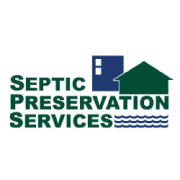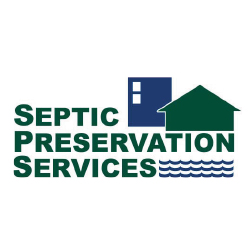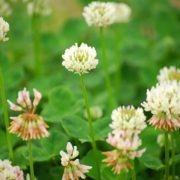Biological Remediation
 We could all use a little change. Sometimes just a little change can make a big difference. Your septic system is the same way. New technology makes it possible to provide biological remediation to your septic system and improve its effectiveness, by increasing its hydraulic capacity, and adding years of additional life.
We could all use a little change. Sometimes just a little change can make a big difference. Your septic system is the same way. New technology makes it possible to provide biological remediation to your septic system and improve its effectiveness, by increasing its hydraulic capacity, and adding years of additional life.
What is Biological Remediation
Many homeowners don’t realize that there is a process that can remediate septic systems that are considered to be severely failed. There are lots of products out there on the market that promise to rejuvenate septic systems by aerating the wastewater. There are limits to aerating wastewater because water itself can only be infused with a limited amount of oxygen before it just bubbles up and floats back into the atmostphere.
The process used by All-Clear Septic & Wastewater, which services customers all throughout Southeastern Massachusetts and Rhode Island, introduces oxygen into the system as well as biologically augments the system. By introducing air into the system, the process of biological remediation is faster and much more thorough. All-Clear has successfully applied this process to septic systems that tried every other method of rejuvenation, and found it to be superior.
![]()
How Does It Work?
When the air is added to the surrounding soil and the clogging biomat of your septic system, the hydraulic capacity of your septic treatment can get boosted by as much as two or five times what it was before. By increasing efficiency, homeowners are able to reduce the size of their drainfield or leachfield and keep that extra area in reserve for future use.
In addition to residential properties, this technique can even be used for commercial purposes, including laundry facilities, healthcare services, restaurants and other businesses that typically process a lot of waste and use a lot of water. Biological remediation can be used on any type of septic system including drop, chambers, stone and pipe.
![]()
Oxygen is Key to an Efficient Septic System
In addition to using this treatment technique to revive failed septic systems, it can also be used with systems that haven’t failed – yet. Older systems, systems that get a lot of use, or customers that live in areas that are known to have soil issues due to environment or location, can all benefit from biological remediation. By adding oxygen to the surrounding soil, you return your septic system to a natural, ideal state of filtration, allowing it to renovate and clean the wastewater of suspended matter and waste solids through the use of micro organisms and nutrients.
Oxygen also helps the soil to maintain a consistent moderate temperature, which is ideal for the treatment of wastewater. When your system gets overloaded with wastewater, due to increased use or changes in the texture and ability of the soil to transfer oxygen, your septic system is at risk of failure. The lower the availability of oxygen, the less micro organisms and nutrients available to assist in proper filtration, which ultimately reduces the hydraulic performance and treatment abilities of your septic system.
![]()
Increasing Efficiency and Effectiveness
Biological remediation helps to maintain the optimal levels of oxygen required for proper filtration in and around the drainfield and leaching system to assure the best possible performance. Because the oxygen levels are increased, as well as the ability of the drainfield to effectively filter solid wastes from the wastewater, property owners are able to reduce the space needed to properly treat their sewage waste. This is extremely helpful in areas that have limited space, as well as naturally wet areas including property that is near lakes, watersheds, wetlands and other bodies of water.
Compared to water, air contains 21,000 times more oxygen. Wastewater can be difficult to full aerate to its maximum capacity, even with pre-treatment systems, due to high levels of total suspended solids. Biological remediation tackles this problem as well, helping to reduce the biological oxygen demand and remove suspended solids. It has also been proven to increase the pathogen removal rate, which is important for the overall health and safety of the system. By increasing oxygenation in the soil, nitrogen is also removed through treatment by as much as 75%.
![]()
Are You Ready for Biological Remediation?
Give your Septic Preservation representative a call at 877-378-4279 or visit www.septicpreservation.com for more detailed information about our biological remediation treatment program and for other tips that you can use to increase the effectiveness and longevity of your septic system. Whether your property is located in Southeastern Massachusetts or Rhode Island, All-Clear can help you get your septic system running clean and clear.



 5/20/16 As many of you may know Tom Hannon of Septic Preservation Services was seriously injured while working conducting a septic inspection in Easton. Easton rescue stabilized him and transported him to Raynham where he was put on a med flight to Rhode Island hospital. Tom is in stable condition with good spirits and expected to be released on Friday. We wish him well and anxiously await his return to our team.
5/20/16 As many of you may know Tom Hannon of Septic Preservation Services was seriously injured while working conducting a septic inspection in Easton. Easton rescue stabilized him and transported him to Raynham where he was put on a med flight to Rhode Island hospital. Tom is in stable condition with good spirits and expected to be released on Friday. We wish him well and anxiously await his return to our team.
 As a Rule of thumb, grass is always a good choice to plant over your septic system.
As a Rule of thumb, grass is always a good choice to plant over your septic system.

